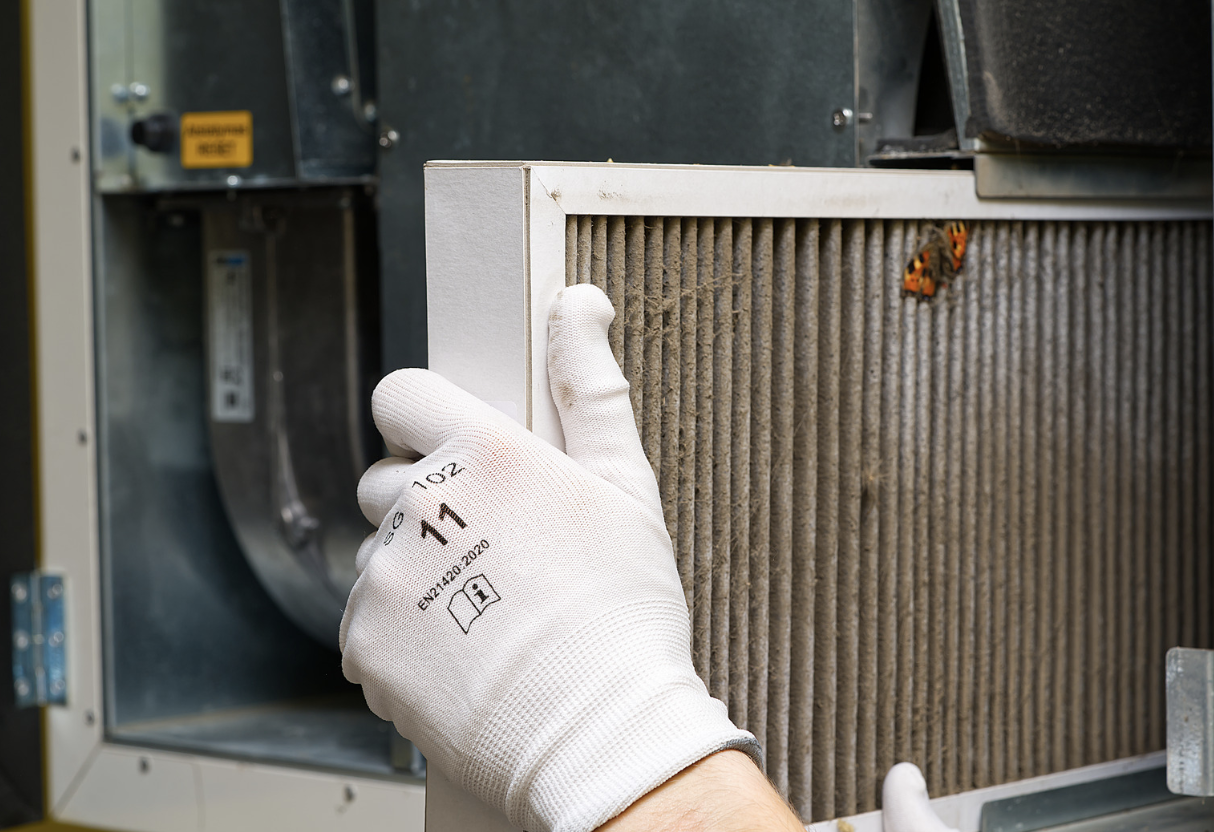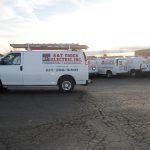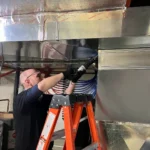As seasons change, ensuring your home remains comfortable year-round is essential. One of the most significant components of home comfort is your HVAC (Heating, Ventilation, and Air Conditioning) system. However, like any system, HVAC units have a lifespan and will eventually require replacement. If you’re wondering whether it’s time for an HVAC replacement or a new HVAC installation, this guide will help you assess your current system and make an informed decision.
Understanding Your HVAC System
Before diving into the signs of needing a replacement, it’s crucial to understand what an HVAC system does. An HVAC system is designed to regulate indoor temperature and humidity, providing comfort and maintaining air quality in your home. It consists of several components, including:
- Furnace: Heats the air before distributing it throughout your home.
- Air Conditioner: Cools the air and removes humidity.
- Ductwork: Distributes heated or cooled air to different rooms.
- Thermostat: Allows you to control the temperature settings.
- Filters: Clean the air circulating through your system.
Each of these components works together to ensure your home remains comfortable in both summer and winter. Over time, wear and tear can affect the efficiency and performance of your HVAC system.
Signs It’s Time for HVAC Replacement
1. Age of the System
The average lifespan of an HVAC system is around 15 to 20 years, depending on the type and maintenance history. If your system is approaching or has surpassed this age, it may be time to consider a replacement. Older units become less efficient, leading to higher energy costs and increased frequency of repairs.
Maintenance History Matters
If you’ve kept up with regular maintenance, such as changing filters and scheduling annual inspections, your HVAC system might last longer. However, if maintenance has been neglected, age becomes a more significant factor in determining whether a replacement is necessary.
2. Frequent Repairs
Are you calling for repairs more often than before? If your HVAC system requires frequent repairs, it may be more cost-effective to invest in a new system. As units age, their parts can wear down, resulting in ongoing issues that can add up quickly.
Costly Repairs
A good rule of thumb is the 50% rule: if repair costs exceed half the price of a new system, replacement may be the better option. For example, if you’re facing a $2,000 repair bill for an old system that could be replaced for $4,000, it might be time to consider a new HVAC installation.
3. Rising Energy Bills
An increase in your energy bills can indicate that your HVAC system is not operating efficiently. Older units often lose their ability to heat or cool effectively, causing them to work harder and use more energy. If you notice a consistent upward trend in your energy costs without any change in usage, it may be time for an HVAC replacement.
Understanding Energy Efficiency
The efficiency of HVAC systems is rated using SEER (Seasonal Energy Efficiency Ratio) for air conditioners and AFUE (Annual Fuel Utilization Efficiency) for furnaces. Higher ratings indicate more efficient systems. If your unit has low ratings, replacing it with a more efficient model can lead to significant savings on your utility bills.
4. Uneven Temperatures
Are certain rooms in your home significantly warmer or cooler than others? If your HVAC system struggles to maintain consistent temperatures throughout your home, it might indicate that the system is not working properly. Duct issues, inadequate insulation, or an aging unit could be the culprits.
Solutions for Uneven Temperatures
Before deciding on a replacement, it’s worth investigating potential solutions. Sometimes, a simple duct cleaning or adding insulation can improve temperature consistency. However, if your system is old and still struggles, it may be time for a full replacement.
5. Excessive Noise
All HVAC systems make some noise during operation, but loud or unusual sounds can indicate a problem. If your unit is making banging, clanging, or screeching noises, it could signal that the system is nearing the end of its lifespan. A professional technician can help diagnose the issue, but if repairs are extensive, consider an HVAC replacement.
Common Noises and Their Meanings
- Banging: Could indicate loose parts or a problem with the motor.
- Squealing: Often a sign of a worn-out belt or motor issues.
- Hissing: May suggest a refrigerant leak or duct issues.
6. Poor Indoor Air Quality
If you notice an increase in dust, allergens, or unpleasant odors in your home, your HVAC system may not be filtering air properly. Older units can become less effective at providing clean air, leading to health concerns for your family. Upgrading to a new HVAC system with advanced filtration options can significantly improve your indoor air quality.
Benefits of Improved Air Quality
A new system can help reduce allergens, pollutants, and humidity levels, creating a healthier living environment. Look for systems that come with HEPA filters or advanced filtration systems to maximize air quality benefits.
7. Increased Humidity Levels
If your home feels excessively humid, even when the air conditioning is running, your HVAC system may not be effectively removing moisture from the air. High humidity levels can lead to discomfort and encourage mold growth. A new HVAC system, particularly those designed for better dehumidification, can help manage indoor humidity more effectively.
8. Thermostat Issues
If your thermostat is not functioning properly, it can lead to inaccurate temperature readings and inefficient heating or cooling. While it might be tempting to simply replace the thermostat, consider whether the HVAC system is old enough that both the thermostat and the HVAC unit may need replacement. Smart thermostats can optimize energy use and improve efficiency.
Benefits of a New HVAC Installation
Investing in a new HVAC installation comes with numerous benefits that extend beyond just comfort.
1. Enhanced Energy Efficiency
New HVAC systems are designed with advanced technology that enhances energy efficiency. With higher SEER (Seasonal Energy Efficiency Ratio) ratings, modern units consume less energy while providing optimal heating and cooling. This can lead to significant savings on your energy bills over time.
Cost-Saving Features
Many new systems include features like variable speed motors and smart technology that adjusts energy usage based on real-time needs, further enhancing efficiency and reducing costs.
2. Improved Indoor Air Quality
New systems often come equipped with advanced filtration and ventilation options. These features help remove allergens, dust, and pollutants from the air, resulting in a healthier living environment for you and your family.
Advanced Filtration Systems
Consider options like multi-stage filtration systems, UV lights, and air purifiers that can enhance indoor air quality significantly compared to older systems.
3. Increased Comfort
Modern HVAC systems offer better temperature control and consistent heating and cooling throughout your home. With features like zoning systems and smart thermostats, you can customize your comfort levels in different areas of your home, ensuring everyone feels comfortable.
Smart Technology Integration
Smart thermostats can learn your schedule and adjust temperatures automatically, allowing for both comfort and energy savings. You can also control your system remotely via smartphone apps.
4. Reduced Environmental Impact
Upgrading to a new, energy-efficient HVAC system reduces your carbon footprint. By consuming less energy, you contribute to a more sustainable environment and help combat climate change.
Eco-Friendly Options
Many manufacturers offer eco-friendly models that use environmentally safe refrigerants and are designed to minimize emissions.
5. Increased Home Value
A new HVAC installation can significantly boost your home’s value. Potential buyers often view updated systems as a major selling point, making your home more appealing in the competitive real estate market.
Marketing Your Home
When it comes time to sell, be sure to highlight the benefits of your new HVAC system in your listing. Energy efficiency and comfort are key concerns for many buyers.
What to Consider Before HVAC Replacement
Before deciding on an HVAC replacement, consider the following factors:
1. Budget
Determine your budget for an HVAC replacement. While initial costs may seem high, consider long-term savings on energy bills and repairs. Obtain multiple quotes from reputable contractors to find the best deal without sacrificing quality.
Financing Options
Look into financing options offered by HVAC companies or local government programs that support energy-efficient upgrades. This can help alleviate the burden of upfront costs.
2. System Type
Different types of HVAC systems are available, including central air conditioning, heat pumps, and ductless systems. Evaluate which system type best suits your home’s layout, heating and cooling needs, and energy efficiency goals.
Ductless Systems
Ductless mini-split systems are an excellent option for homes without existing ductwork. They offer flexibility and can efficiently heat or cool individual rooms.
3. Energy Efficiency Ratings
Look for HVAC systems with high SEER and AFUE (Annual Fuel Utilization Efficiency) ratings. Higher ratings indicate better energy efficiency, leading to lower operating costs.
The Importance of SEER and AFUE
Understanding these ratings can help you compare systems more effectively and choose one that aligns with your energy efficiency goals.
4. Professional Installation
Proper installation is crucial for optimal performance. Choose a licensed and experienced HVAC contractor for the job. A professional installation ensures that the system operates efficiently and complies with local codes.
Researching Contractors
Check reviews, ask for references, and verify credentials before hiring an HVAC contractor. A well-installed system can save you money and headaches in the long run.
5. Warranty and Maintenance
Before committing to a new HVAC system, understand the warranty coverage and maintenance requirements. Look for systems with robust warranties and consider setting up a maintenance plan with your contractor.
Long-Term Protection
Regular maintenance can extend the lifespan of your HVAC system, ensuring it continues to operate efficiently for years to come.
Determining whether to replace your HVAC system can be a daunting task. By recognizing the signs of aging, understanding the benefits of a new installation, and considering your budget and options, you can make an informed decision that keeps your home comfortable and energy-efficient.
Don’t hesitate to reach out to a professional HVAC contractor for a thorough assessment of your system. They can provide valuable insights and help you navigate the replacement process smoothly. An efficient, reliable HVAC system is an investment in your home’s comfort and value, ensuring your family enjoys a pleasant living environment for years to come.







